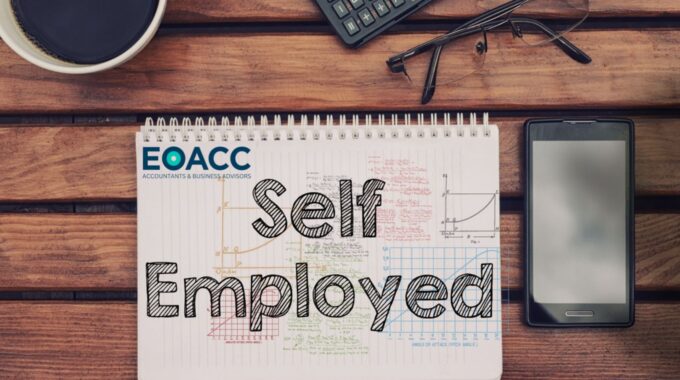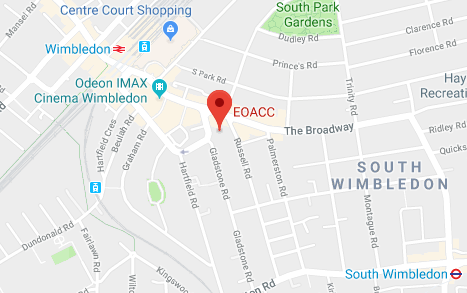In a fast-paced world dominated by the latest…

Setting up a new business as a self-employed individual
When starting a business, there are a lot of big decisions to be made, including whether to go self-employed or set up as a limited company. Every business, irrespective of the size, big or small, must have a legal structure.
Here we look at some of the benefits and drawbacks of going down the self-employed route and things to consider if you choose this path:
Benefits of being self-employed
Keep things simple:
You only need to report income and expenditure once a year (assuming no requirement to register for VAT). This can be done on a cash basis (i.e. when customer pays you for the work, not when the work was completed/ invoice raised).
Also, it is much easier to close down the business if things don’t work out.
Lower compliance costs:
As records required for a small sole trader business are relatively simple, accountancy fees are typically lower, and you may not require any software to record your business transactions (which for Xero costs from £14 plus VAT a month).
Greater privacy:
Your name and details are not in the public domain.
The tax difference might not be as much as you think:
Taxes based on rates set for the 23/24 year:
| Trading Profits | £20,000 | £30,000 | £40,000 | £50,000 |
| Ltd Company: (Corp tax plus tax on dividends) | £2,756 | £5,365 | £7,974 | £10,582 |
| Self-employed: Income tax and NI | £2,388 | £5,361 | £8,334 | £11,307 |
| Difference | £368 | £3 | -£361 | -£725 |
(Above assumes no other sources of income, no partners in the business, and all profits extracted annually. If you have any other income, the above figures will change. Also, it does not include any savings on accounting fees for self-employed, as that saving would depend on the accounting and tax needs of your self-employed business.)
Drawbacks
Limited liability status
You don’t have this as a sole trader and personal assets are at risk if the business becomes bankrupt.
Kudos
There is a certain amount of kudos associated with the title ‘Company Director’ when pitching for new work.
Expansion plans
Much harder to bring new people into a SE business. If you’re looking to share the responsibilities of running a business with someone else a limited company has the scope to do this.
Things you should consider with a self-employed business
Set up a separate bank account
If you are going to trade as self-employed, then make sure to open a separate bank account that you only use for business transactions.
The process in practice will work as follow:
- Get clients to pay into your separately created self-employed business bank account.
- Pay for expenses incurred wholly and exclusively for business purposes only from this self-employed business bank account, as far as possible.
- If you need money to pay for your personal expenses, then transfer one amount from your self-employed business account to your personal account. (You can then pay for your personal expenses, food, travel entertainment etc directly from your personal bank account).
- Don’t pay for personal expenses directly from your self-employed business bank account. The whole idea is to keep the business bank account (as much as possible) for business transactions only.
- You can leave money for tax in the self-employed business bank account.
If you can separate your business and personal transactions by using separate bank accounts, then your self-employed income and expenditure is much easier to calculate.
Also, if HMRC ever do a compliance check on your tax return, then you only need to provide them with your business bank statements. Everything is a lot clearer and more transparent this way.
Taking a more robust approach
We would however suggest a more comprehensive and robust approach being taken if any of the following applies to your self-employed business:
- You have more than 20 business transactions a month.
- You have assets, business vehicles, property and you have one or more business partners.
- You have employees and are running a payroll.
- You are operating under the Construction Industry scheme (CIS).
- Your turnover is more than £50k a year.
- You have stock, meaning you sell products/goods, or you need to buy stock in bulk which is consumed over a period of time.
- Your income is received in advance and your income needs to be spread over the period of the project for tax purposes.
- You have any foreign currency transactions.
- You need to draw up a set of financials each year to calculate your taxable income.
- You need financial accounts (including a balance sheet) to apply for a mortgage etc.
- You need regular support about which expenses you can and can’t claim.
- You have business expenses that are generally more than 5% of your total annual turnover.
- Your business is VAT registered.
- You have multiple clients.
- You require help with tax planning and general tax advice.
In this instance we recommend signing up for a monthly support accounting package. This will help you plan and budget for future tax bills. Taking a pro-active approach will also help us to minimise your tax where possible, and ensure that you are claiming for any relevant and legitimate business expenses.
In order for an accountant to provide any advice, we need up-to-date and real time business information. This is where keeping track of your income and expenses in a cloud-based accountancy system will help a great deal.
Our accountancy fees will depend on:
- Number of transactions.
- Complexity of the business.
- Type of work – whether it is general bookkeeping support or more tax planning advice.
- Use of accountancy software – whether the transactions are correctly and accurately recoded in a recognised accounting software.
Get in touch with EOACC today for a fee proposal to get all the support you need to get the accounting and taxes sorted for your business.

